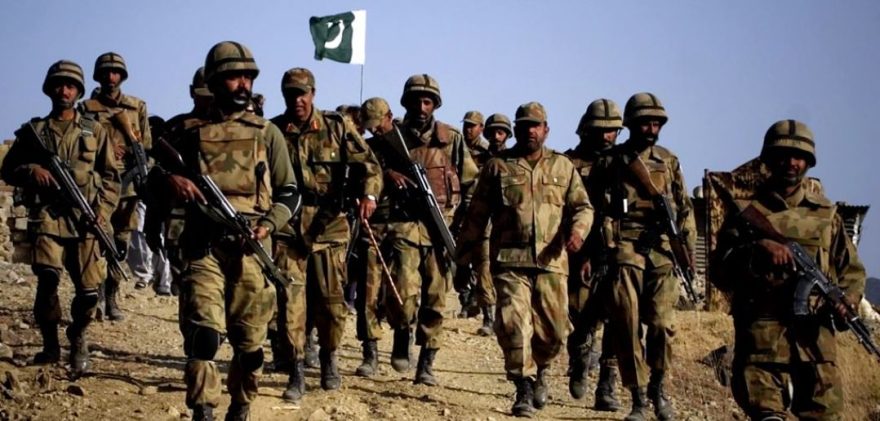On June 22, Pakistan announced the initiation of Operation Azm-i-Istehkam (Resolve for Stability), a nationwide counterterrorism campaign aimed at addressing the rising tide of terrorism and religious extremism within the country. Historically, such operations have primarily focused on the regions of Khyber Pakhtunkhwa (KP) and Balochistan. A significant factor influencing this new operation appears to be pressure from China. The timing of the announcement suggests a response to Beijing’s concerns, coinciding with Pakistani Prime Minister Shehbaz Sharif’s recent visit to China. China has reportedly urged Pakistan to ensure security for Chinese nationals and interests in the region, particularly in light of the upcoming second phase of the China-Pakistan Economic Corridor (CPEC) projects.
Liu Jianchao, Minister of the Central Committee of the International Department of the Communist Party of China, emphasized during his visit to Islamabad on June 22 that security threats are the primary challenge to CPEC cooperation. He stated, “Confidence is more precious than gold. In the case of Pakistan, the primary factor shaking the confidence of Chinese investors is the security situation.” Pakistan’s substantial debt to China, accounting for over 72% of its external bilateral debt, and recent financial relief from Beijing underscore the importance of this relationship. Despite these financial ties, attacks on Chinese nationals in Pakistan have escalated, exemplified by a March suicide bombing in Khyber Pakhtunkhwa’s Shangla district that claimed the lives of five Chinese engineers and their local driver.
Reports indicate that the decision to launch a new counterterrorism operation followed the collapse of peace talks between Tehrik-i-Taliban Pakistan (TTP) and Islamabad in 2022, leading to an increase in terror activities nationwide. The Centre for Research and Security Studies’ annual security report highlighted that in 2023, Pakistan experienced 1,524 violence-related fatalities and 1,463 injuries from 789 terror attacks and counterterrorism operations, marking a six-year high. The announcement of the new operation by General Syed Asim Munir, the army chief of Pakistan, represents a consolidation of military power, continuing a pattern established by his predecessors since 2001.
The announcement of Operation Azm-i-Istehkam came two months after the military-backed coalition government led by Shehbaz Sharif assumed power in Islamabad. This move would have been challenging under the previous government led by Imran Khan’s Pakistan Tehreek-i-Insaf (PTI), with PTI’s Chief Minister in Khyber Pakhtunkhwa, Ali Amin Gandapur, and other regional political figures expressing concerns about the operation.
Security analysts worry that, similar to previous counterterrorism operations in Pakistan, the new initiative could adversely affect the livelihoods of the Pashtun population in the tribal areas of Khyber Pakhtunkhwa and result in increased civilian casualties. Since the announcement on June 22, groups like the Pashtun Tahaffuz Movement (PTM) have organized protests and rallies in the Pashtun-dominated tribal areas. The local population faces the dual threat of Islamist terror groups and the armed forces’ activities under Operation Azm-i-Istehkam. Past counterterrorism operations in the former Federally Administered Tribal Areas (FATA) resulted in significant displacement of people.
Additionally, the Free Balochistan Movement (FBM) announced a social media campaign against the new operation, claiming it was initiated “at China’s behest” and targeted the sovereignty of the Baloch people. There is widespread skepticism about the operation’s effectiveness and the military establishment’s commitment to addressing all terror threats rather than selectively targeting groups under Chinese pressure.
A significant portion of the Pakistani population, especially supporters of Imran Khan, harbors distrust towards the military establishment. Critics argue that the new security campaign could be used to target political opponents and detractors of the Pakistan Army. In response to growing criticism and lack of public support, the Pakistan Army’s leadership, under General Munir, expressed concerns during a July 5 meeting about what they termed “unwarranted criticism by some quarters and deliberate misrepresentation” of Operation Azm-i-Istehkam. The government issued a clarification on June 25, asserting that the operation would not be a “kinetic large-scale military operation” nor entail mass displacement of the local population.
The timing of this military campaign could present challenges for Pakistan in the coming months. The country’s economy may not be robust enough to support such an extensive operation amid political opposition and human rights concerns. The Pashtun and Baloch populations are particularly vulnerable to the consequences of this campaign, which aims to satisfy Chinese demands and attract further investment. While China remains unaffected by the operation’s outcomes, Pakistan faces significant economic and security uncertainties in the near future. The effectiveness of Operation Azm-i-Istehkam in eradicating terrorism from Pakistan remains to be seen.
khaama.com

